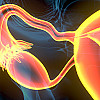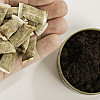Recent Blog Articles

Lead poisoning: What parents should know and do

How does waiting on prostate cancer treatment affect survival?

Does running cause arthritis?

Is alcohol and weight loss surgery a risky combination?

Preventing ovarian cancer: Should women consider removing fallopian tubes?

Healthier planet, healthier people

Is snuff really safer than smoking?

Will miscarriage care remain available?

Considering collagen drinks and supplements?

Does less TV time lower your risk for dementia?
Fecal Incontinence
What Is It?
When stool (feces) leaks out from the rectum accidentally, it is known as fecal incontinence. Under normal circumstances, stool enters the end portion of the large intestine, called the rectum, where it is temporarily stored until a bowel movement occurs. As the rectum fills with stool, the anal sphincter muscle (a circular muscle surrounding the anal canal) prevents feces from coming out of the rectum until it is time to have a deliberate (controlled) bowel movement.
Various conditions can cause incontinence. The most common reason for incontinence is that the anal sphincter becomes too weak to hold the stool in the rectum. Alternatively, sometimes the rectum may start to lose its capacity to store the stool, or the person may be unable to feel that the rectum is full. Also, a person must be able to be aware of the need to empty the bowel, and be mobile enough to reach the bathroom in time. Diarrhea from any cause makes incontinence worse (since it is more difficult to control liquid stool than solid stool).
To continue reading this article, you must log in.
Subscribe to Harvard Health Online for immediate access to health news and information from Harvard Medical School.
- Research health conditions
- Check your symptoms
- Prepare for a doctor's visit or test
- Find the best treatments and procedures for you
- Explore options for better nutrition and exercise
I'd like to receive access to Harvard Health Online for only $4.99 a month.
Sign Me UpAlready a member? Login ».
Disclaimer:
As a service to our readers, Harvard Health Publishing provides access to our library of archived content. Please note the date of last review or update on all articles.
No content on this site, regardless of date, should ever be used as a substitute for direct medical advice from your doctor or other qualified clinician.
Free Healthbeat Signup
Get the latest in health news delivered to your inbox!
